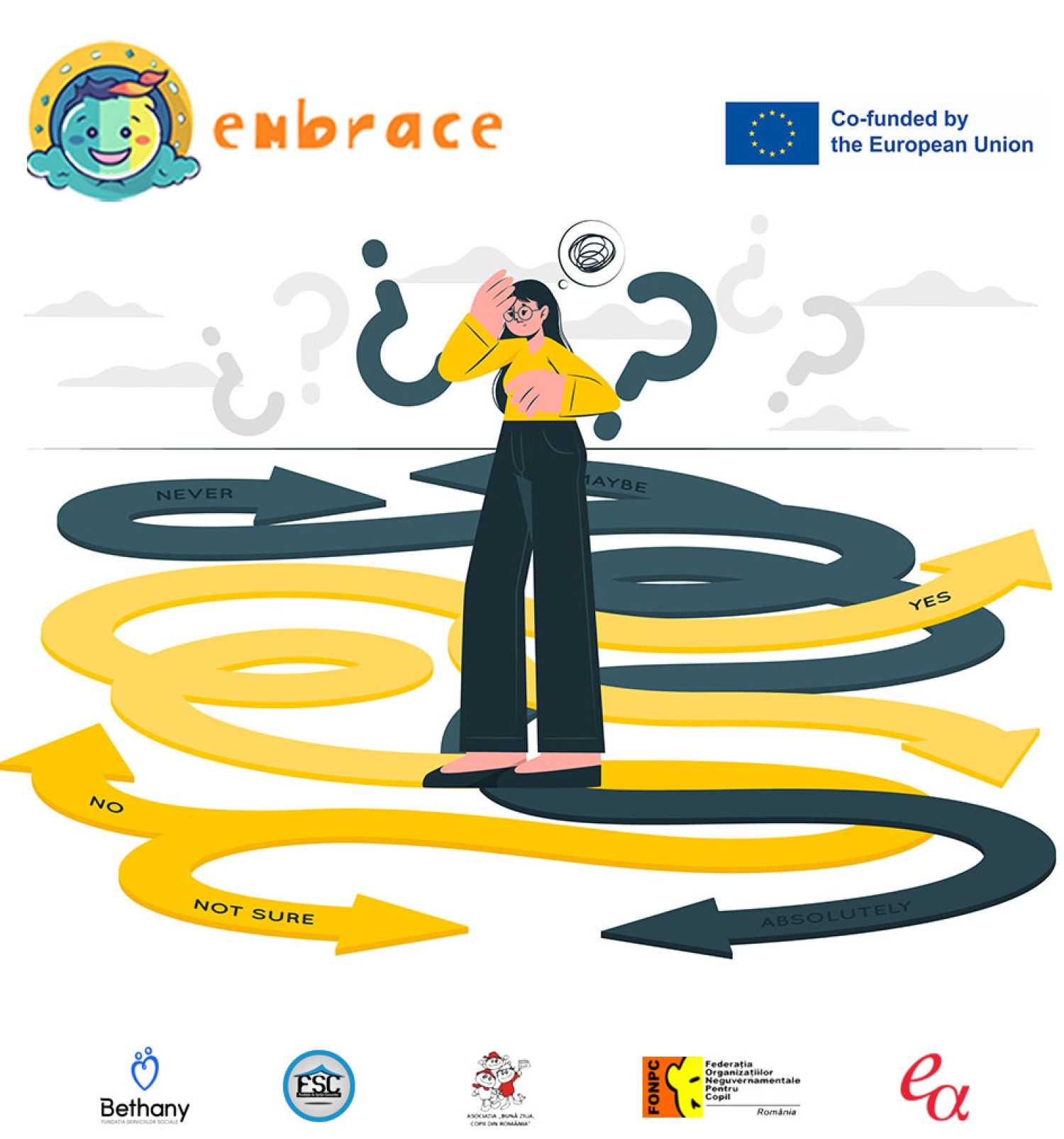Why are decision-making strategies important for young people?
According to the European Commission, competences like critical thinking, self-regulation, and well-being are essential for helping young people adapt to a changing world, develop personally and socially, and remain employable through lifelong learning (LifeComp).
These are critical life skills, yet often overlooked in traditional education.
One of the core areas of the European Union’s Youth Strategy also aims to engage youth by encouraging them to be active in society and participate in decision-making (EU Youth Strategy).
That’s why EMBRACE developed Module 2: Cognitive Well-Being, which focuses on empowering Romanian school students with practical tools for mental and emotional development.
The partners have developed three versions of Module 2 adjusted to the needs of different age groups: elementary, middle and high school.
In Session 1 of 3, one of the topics high school students explore is how to make decisions, particularly:
✅ What decision-making really means
✅ A 7-step process for making healthy decisions
✅ How emotions, media, family values, and peer pressure influence our choices
✅ Helpful strategies like:
- Asking trusted adults
- Using critical thinking
- Listing pros and cons
- Learning from mistakes
- Trusting your intuition (with care!)
✅ Decision-making styles: Sequential, Logical, Global, Cooperative
This session is part of a broader effort to help students become more aware, confident, and responsible decision-makers.
Our partners co-developed a tailored presentation and toolkit to support this session:
• Fundatia Serviciilor Sociale Bethany (FSSB)
- Fundatia de Sprijin Comunitar (FSC)
- Asociatia “Bună Ziua, Copii din România”` (BZRO)
- Federatia Organizatiilor Neguvernamentale pentru Copil (FONPC)
- Evolutionary Archetypes Consulting SL (EAC)
👉Learn more about EMBRACE: https://embrace-future.eu



